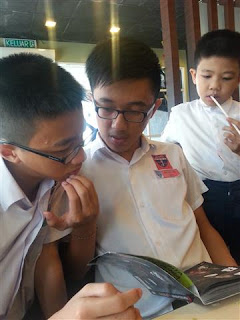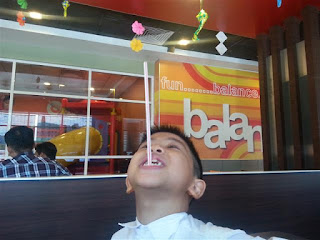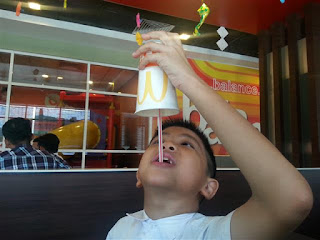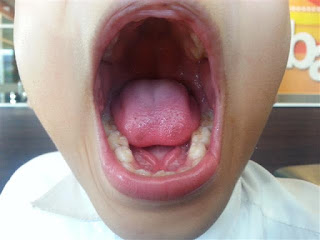by Justin Coulson
Kegembiraan berbasikal : Kesan positif berkayuh.
Cycling is a beautiful sport. We hear it all the time. We experience it when we ride and race. For the ever-increasing number of us that have caught the cycling bug, we know how happy cycling makes us.
Kita banyak mendengar dan mengalami kebaikan berbasikal
But what is it that makes us love cycling so much? Why are we so compulsively drawn to it? Why does cycling make us happy in a way that perhaps tennis, or swimming, or footy can’t?
The science of positive psychology investigates what makes life most worth living. Cycling seems to possess an array of attributes that boost happiness in ways that few other sports can claim. While many other sports may possess a small handful of these attributes, it seems that cycling may be one of very few that has them all.
Here are my 15 reasons cycling makes us happy based on the science of positive psychology:
PHYSICAL HEALTH
Aerobic exercise is proven to be one of the greatest predictors of our physical health. Our body simply works better when we are physically fit. This is a widely accepted and understood principle, so I won’t go into any more detail on this one in this article.
MENTAL HEALTH
Physically fit and healthy people are generally happier than their unfit, unhealthy counterparts. Depression, anxiety, and stress are generally lower in physically healthy people. Cycling boosts mental health.
CYCLING IS SOCIAL
As a surfer, I would sit in the ocean and selfishly savour the serenity and the solo surf. Now and then I would glimpse another surfer walking along the beach towards me and I would curse them, hoping they would select another spot. Cycling is different. While solo rides are great, our best times on the bike often involve group rides with friends. Plus cycling is great for networking in ways that few other sports are.
COMPETENCE
Cycling is something that just about anyone can do. It is immensely accessible.
SAVOURING
Savouring is what we do when we mentally enlarge or magnify a pleasant experience. Savouring is a powerful wellbeing booster. Cycling is a sport that gives us enormous opportunity to “breathe it in”.
Whether it is the quiet appreciation of a panoramic view (think Gruber images, or your local hilltop or headland), the exhilaration of a fast descent, or the post-ride coffee and chit-chat as we relive the best bits of the bunch ride with mates, there is plenty to savour during (and after) most rides.
GRATITUDE
Gratitude and savouring often go hand in hand. It’s hard to savour without feeling grateful. Gratitude also makes us happy. Sometimes the things we feel on a bike can be sublime.
Cycling offers those precious quiet moments that fill us with awe and gratitude. While it might be on top of a world-famous peak, it can happen just as easily on a quiet suburban street as the sun rises, the day begins, and we feel that sense of awe, appreciation, or gratitude. It’s as though everything is right with the world – even when it’s not. And for that moment while we are on two wheels, we feel happy.
GOALS
I’ve written previously on CyclingTips about the different kinds of goals we can pursue when we ride. It seems that while we exercise and seek improvement and mastery, we feel better about life. Our wellbeing increases. The pursuit of our goals makes us happy.
SENSATION-SEEKING AND RISK
One of the exciting attributes of many sports is the sensation-seeking opportunities they afford. Research shows that physical activity is viewed as a way to achieve our need to be excited, lively and adventurous. Risk and opportunities for a ‘thrill’ can be part of every ride – and the buzz of a fast descent, the rush of a bunch sprint, or the challenge of an off-road track or rock-garden can give us a grin that lasts for days.
ACCOMPLISHMENT
Some scholars argue that accomplishment is one of the key contributors to our sense of wellbeing. Because of its accessibility, cycling is a never-ending source of accomplishment opportunities. Whether it’s a strava KOM or PR, a long-distance ride, an Everest experience, or reaching a personal goal, our cycling accomplishments are rewarding.
FLOW/ENGAGEMENT
Some people have described flow as the secret to happiness. It occurs when we are so engaged in something that we lose all track of time. We don’t notice anything at all because we are so immersed in a task that is at once optimally challenging and absorbing. Some of our most immersive, flow experiences occur on the bike.
OPTIMISM
People who are optimistic believe good things are coming, and that the future looks bright. Optimists are also much happier than those who are fearful about the future. Because cyclists are goal-oriented, grateful, and engaged in their sport, we are always looking forward to our next ride (often to the detriment of other priorities!), and our optimism feels good.
STRENGTHS
We feel good when we use our strengths. Strengths are things that we do well, feel authentic to us, and energise us. If we love cycling, we can usually identify our cycling strengths, and not much feels better than tearing our mates’ legs off while we take advantage of our strengths!
RESTORATION
True recreation is restorative. It helps us to re-create ourselves. While cycling can leave us exhausted, it is also restorative.We sleep better (which is crucial for wellbeing), and feel physically and mentally better for having had our ride.
MEANING
One of the most important things cycling can facilitate is meaningful contribution to something larger than you or I. Events including Round the Bay, Smiling for Smiddy, the Tour de Cure, the Multiple Sclerosis Sydney to Gong, even the Pollie Pedal, and dozens of other rides provide opportunities to give back by doing something we love.
At an institutional level, we see the meaning and purpose riders feel when they ride for Team Rwanda or MTN-Qhubeka or when they ride for diabetes awareness.
Having a larger purpose in our lives provides meaning, and ultimately, greater happiness.
POSITIVE EMOTIONS
If we have a healthy orientation to cycling we feel a broad range of positive emotions when we ride. Joy, contentment, absorbed, satisfied, accomplished, alert, calm and peaceful, confident, powerful, excited – happy. It just feels great to be on the bike!
***
Ultimately, for all of these reasons and more, we feel good when we ride. This is the positive psychology of cycling. It is addictive, it feels great, and when we get the balance right it builds our social, physiological, psychological and even our cognitive resources.
What have we missed? Is there something else about cycling that makes you feel great?







































